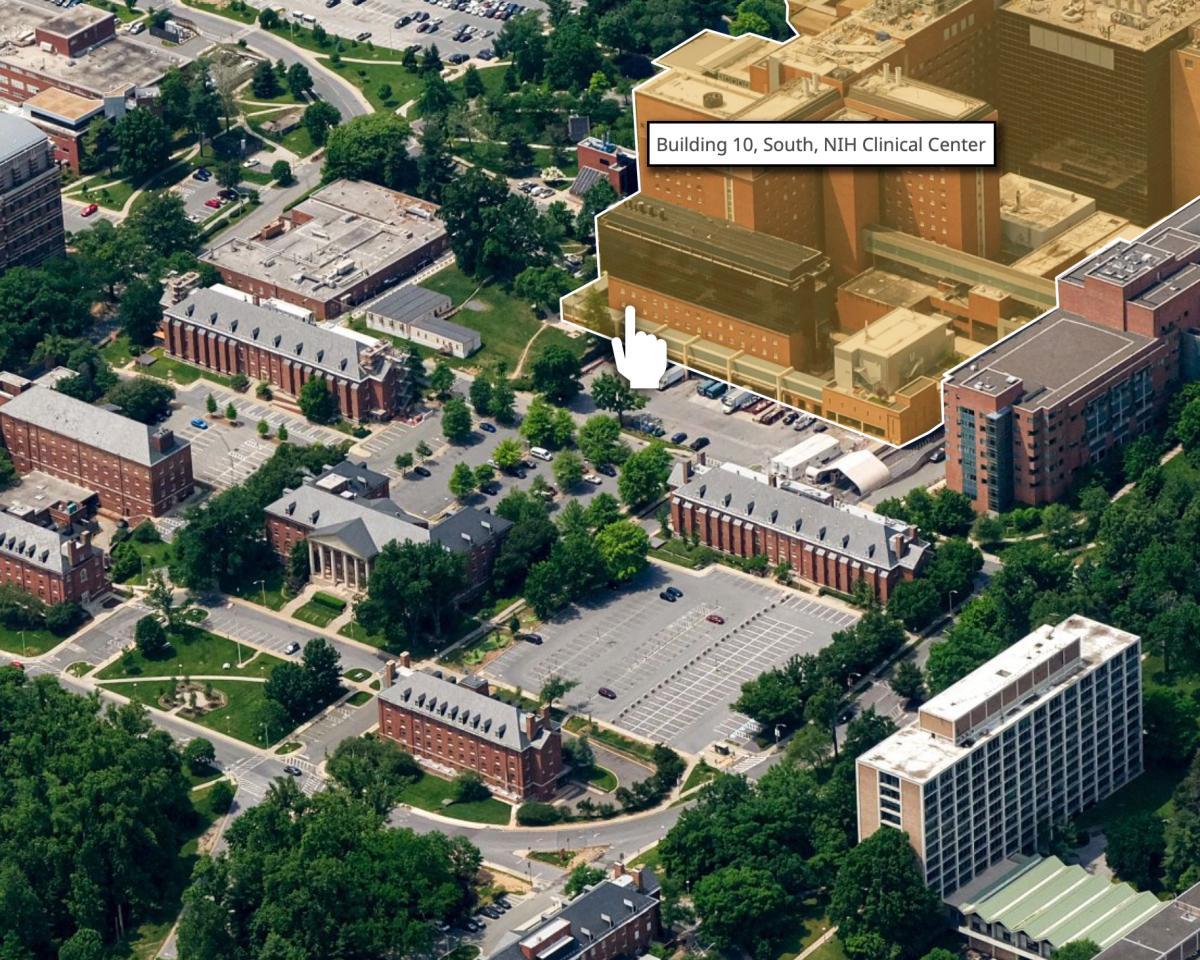The goal of the Feasibility of Novel Diagnostics for TB in Endemic Countries (FEND for TB) program is to support the evaluation of early-stage diagnostics and novel diagnostic strategies for TB to address an urgent need for improved diagnostics. TB is one of the leading infectious disease causes of mortality in the world. About 1.7 billion people are currently infected with Mycobacterium tuberculosis (Mtb) and are at risk of developing active TB disease. There are 10 million new TB cases and 1.5 million TB deaths annually. Increasing rates of multi-drug and extensively drug-resistant TB (MDR-TB and XDR-TB) pose a growing threat. Early diagnosis of TB and universal drug-susceptibility testing are critical to identifying the most appropriate treatment for individual patients and to preventing the spread of disease.
Main Area of Focus
Despite major advances in recent years, critical diagnostic needs are still needed for TB. There is an urgent need for true point of care (POC) diagnostics, including rapid drug susceptibility testing (DST), pediatric targeted diagnostics, assays that do not rely on sputum and technologies to improve diagnosis of disseminated and paucibacillary TB.
In 2020, NIAID made 3 awards to establish centers under the Feasibility of Novel Diagnostics for TB in Endemic Countries (FEND for TB) solicitation (RFA-AI-19-030). These three centers will provide clinical site capacity to evaluate TB diagnostics in 12 TB-endemic countries and will evaluate 36 different assays and biomarkers, including diagnostics for triage testing, rapid point of care diagnosis and drug susceptibility testing. The centers have options for diagnostic technology holders to submit requests to have their early-stage TB diagnostic tests evaluated.
The centers will conduct proof-of principle studies and provide feedback to diagnostic developers on the performance of their technologies and potential strategies for use in endemic settings. These diagnostic technologies will be suitable for use in a variety of different settings and will include testing for different patient populations, such as pediatric groups and people living with HIV.
Locations
University of California, San Francisco
Contact PI: Adithya Cattamanchi
Award number: U01AI152087
www.r2d2tbnetwork.org
RBHS-New Jersey Medical School
Contact PI: Jerrold Ellner,
Award number: U01AI152084
https://www.fend-tb.org/
Stellenbosch University
Contact PI: Gerhard Walzl
Award number: U01AI152075
www.endxtb.com
Contact Information
Karen Lacourciere, Ph.D., Division of Microbiology and Infectious Diseases
Fatima Jones, Ph.D., Division of AIDS
FEND for TB
The Feasibility of Novel Diagnostics for TB in Endemic Countries (FEND for TB) program supports the evaluation of early-stage diagnostics and novel diagnostic strategies for TB, in TB endemic countries to address an urgent need for improved tuberculosis (TB) diagnostics.
Chaim A. Schramm, Ph.D.
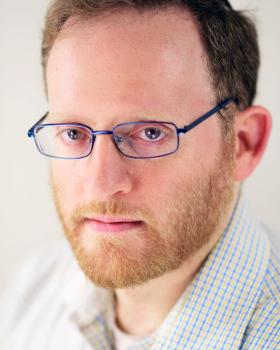
Major Areas of Research
- Single cell RNASeq and CITEseq analysis of innate and adaptive immune responses
- Dynamics of IG and TR repertoires in response to vaccination and infection
- Somatic hypermutation and antibody phylogenetics
- Impact of IG genetics on immune outcomes
Program Description
The Integrative Bioinformatics of Immune Systems (IBIS) Core is the central bioinformatic resource for all repertoire and “omics” studies in the VRC, offering coordinated staffing and planning for multi-section and external collaborations, such as the ongoing SARS-CoV-2 response efforts. Specific research areas in the IBIS Core include transcriptomic analysis of both innate and adaptive immune cells, T cell receptor repertoire analysis, B cell receptor sequence and phylogenetic analysis, and analysis of immune cell population dynamics. In addition, we work closely with the Genome Analysis, Humoral Immunology, Structural Bioinformatics Cores, and the Vaccine Immunology Program to prioritize experiments and analyses that will best advance the scientific objectives of the VRC.
Biography
Dr. Schramm earned his Ph.D. from the University of Pennsylvania in 2012 and completed a postdoctoral fellowship at Columbia University prior to joining the VRC as a staff scientist in 2016. Dr. Schramm has been a pioneer in the longitudinal phylogenetic analysis of B cell clonal lineages and developed the SONAR analysis suite to facilitate those studies. He also has significant research interests in IG V gene substitution profiles and immunogenetics. As chief of the IBIS Core, Dr. Schramm designs and leads large-scale scRNASeq analyses of innate and adaptive immune cells dynamics in infection and vaccination. Beyond the VRC, Dr. Schramm is a founding member of the AIRR Community organization and serves as co-chair of the Software Working Group.
Selected Publications
Corbett KS, Gagne M, Wagner DA, Connell SO, Narpala SR, Flebbe DR, Andrew SF, Davis RL, Flynn B, Johnston TS, Stringham C, Lai L, Valentin D, Van Ry A, Flinchbaugh Z, Werner AP, Moliva JI, Sriparna M, O'Dell S, Schmidt SD, Tucker C, Choi A, Koch M, Bock KW, Minai M, Nagata BM, Alvarado GS, Henry AR, Laboune F, Schramm CA, Zhang Y, Wang L, Choe M, Boyoglu-Barnum S, Shi W, Lamb E, Nurmukhambetova ST, Provost SJ, Donaldson MM, Marquez J, Todd JM, Cook A, Dodson A, Pekosz A, Boritz E, Ploquin A, Doria-Rose N, Pessaint L, Andersen H, Foulds KE, Misasi J, Wu K, Carfi A, Nason MC, Mascola J, Moore IN, Edwards DK, Lewis MG, Suthar MS, Roederer M, McDermott A, Douek DC, Sullivan NJ, Graham BS, Seder RA. Protection against SARS-CoV-2 Beta Variant in mRNA-1273 Boosted Nonhuman Primates. bioRxiv [Preprint]. 2021 Aug:2021.08.11.456015.
Wang L, Zhou T, Zhang Y, Yang ES, Schramm CA, Shi W, Pegu A, Oloniniyi OK, Henry AR, Darko S, Narpala SR, Hatcher C, Martinez DR, Tsybovsky Y, Phung E, Abiona OM, Antia A, Cale EM, Chang LA, Choe M, Corbett KS, Davis RL, DiPiazza AT, Gordon IJ, Hait SH, Hermanus T, Kgagudi P, Laboune F, Leung K, Liu T, Mason RD, Nazzari AF, Novik L, O'Connell S, O'Dell S, Olia AS, Schmidt SD, Stephens T, Stringham CD, Talana CA, Teng IT, Wagner DA, Widge AT, Zhang B, Roederer M, Ledgerwood JE, Ruckwardt TJ, Gaudinski MR, Moore PL, Doria-Rose NA, Baric RS, Graham BS, McDermott AB, Douek DC, Kwong PD, Mascola JR, Sullivan NJ, Misasi J. Ultrapotent antibodies against diverse and highly transmissible SARS-CoV-2 variants. Science. 2021 Aug;373(6556):eabh1766.
Mukhamedova M, Wrapp D, Shen CH, Gilman MSA, Ruckwardt TJ, Schramm CA, Ault L, Chang L, Derrien-Colemyn A, Lucas SAM, Ransier A, Darko S, Phung E, Wang L, Zhang Y, Rush SA, Madan B, Stewart-Jones GBE, Costner PJ, Holman LA, Hickman SP, Berkowitz NM, Doria-Rose NA, Morabito KM, DeKosky BJ, Gaudinski MR, Chen GL, Crank MC, Misasi J, Sullivan NJ, Douek DC, Kwong PD, Graham BS, McLellan JS, Mascola JR. Vaccination with prefusion-stabilized respiratory syncytial virus fusion protein induces genetically and antigenically diverse antibody responses. Immunity. 2021 Apr;54(4):769-780.e6.
Roark RS, Li H, Williams WB, Chug H, Mason RD, Gorman J, Wang S, Lee FH, Rando J, Bonsignori M, Hwang KK, Saunders KO, Wiehe K, Moody MA, Hraber PT, Wagh K, Giorgi EE, Russell RM, Bibollet-Ruche F, Liu W, Connell J, Smith AG, DeVoto J, Murphy AI, Smith J, Ding W, Zhao C, Chohan N, Okumura M, Rosario C, Ding Y, Lindemuth E, Bauer AM, Bar KJ, Ambrozak D, Chao CW, Chuang GY, Geng H, Lin BC, Louder MK, Nguyen R, Zhang B, Lewis MG, Raymond DD, Doria-Rose NA, Schramm CA, Douek DC, Roederer M, Kepler TB, Kelsoe G, Mascola JR, Kwong PD, Korber BT, Harrison SC, Haynes BF, Hahn BH, Shaw GM. Recapitulation of HIV-1 Env-antibody coevolution in macaques leading to neutralization breadth. Science. 2021 Jan;371(6525):eabd2638.
Dr Schramm is a computational immunologist studying B cell biology through sequencing. A significant portion of his research is focused on antibody development and evolution with an emphasis on applications to vaccine design. Rare, broadly neutralizing antibodies against HIV-1 are of particular interest, as the induction of such bnAbs by vaccination is thought to be one of the best strategies for ending the global epidemic. Dr. Schramm also studies patterns of somatic hypermutation and the emergence of specific rare substitutions with great functional importance. Other areas of research include immunogenetics and understanding how variation in the germline repertoire impacts the immune response to infection or vaccination, as well as efforts to investigate immune responses through single cell transcriptomics.
Lima NS, Mukhamedova M, Johnston TS, Wagner DA, Henry AR, Wang L, Yang ES, Zhang Y, Birungi K, Black WP, O'Dell S, Schmidt SD, Moon D, Lorang CG, Zhao B, Chen M, Boswell KL, Roberts-Torres J, Davis RL, Peyton L, Narpala SR, O'Connell S, Wang J, Schrager A, Talana CA, Leung K, Shi W, Khashab R, Biber A, Zilberman T, Rhein J, Vetter S, Ahmed A, Novik L, Widge A, Gordon I, Guech M, Teng IT, Phung E, Ruckwardt TJ, Pegu A, Misasi J, Doria-Rose NA, Gaudinski M, Koup RA, Kwong PD, McDermott AB, Amit S, Schacker TW, Levy I, Mascola JR, Sullivan NJ, Schramm CA, Douek DC. Convergent epitope specificities, V gene usage and public clones elicited by primary exposure to SARS-CoV-2 variants. bioRxiv [Preprint]. 2022 Mar 29:2022.03.28.486152.
Wang L, Zhou T, Zhang Y, Yang ES, Schramm CA, Shi W, Pegu A, Oloniniyi OK, Henry AR, Darko S, Narpala SR, Hatcher C, Martinez DR, Tsybovsky Y, Phung E, Abiona OM, Antia A, Cale EM, Chang LA, Choe M, Corbett KS, Davis RL, DiPiazza AT, Gordon IJ, Hait SH, Hermanus T, Kgagudi P, Laboune F, Leung K, Liu T, Mason RD, Nazzari AF, Novik L, O'Connell S, O'Dell S, Olia AS, Schmidt SD, Stephens T, Stringham CD, Talana CA, Teng IT, Wagner DA, Widge AT, Zhang B, Roederer M, Ledgerwood JE, Ruckwardt TJ, Gaudinski MR, Moore PL, Doria-Rose NA, Baric RS, Graham BS, McDermott AB, Douek DC, Kwong PD, Mascola JR, Sullivan NJ, Misasi J. Ultrapotent antibodies against diverse and highly transmissible SARS-CoV-2 variants. Science. 2021 Aug 13;373(6556):eabh1766.
Olson BJ, Moghimi P, Schramm CA, Obraztsova A, Ralph D, Vander Heiden JA, Shugay M, Shepherd AJ, Lees W, Matsen FA 4th. sumrep: A Summary Statistic Framework for Immune Receptor Repertoire Comparison and Model Validation. Front Immunol. 2019 Nov 1;10:2533.
Andrews SF, Chambers MJ, Schramm CA, Plyler J, Raab JE, Kanekiyo M, Gillespie RA, Ransier A, Darko S, Hu J, Chen X, Yassine HM, Boyington JC, Crank MC, Chen GL, Coates E, Mascola JR, Douek DC, Graham BS, Ledgerwood JE, McDermott AB. Activation Dynamics and Immunoglobulin Evolution of Pre-existing and Newly Generated Human Memory B cell Responses to Influenza Hemagglutinin. Immunity. 2019 Aug 20;51(2):398-410.e5.
Krebs SJ, Kwon YD, Schramm CA, Law WH, Donofrio G, Zhou KH, Gift S, Dussupt V, Georgiev IS, Schätzle S, McDaniel JR, Lai YT, Sastry M, Zhang B, Jarosinski MC, Ransier A, Chenine AL, Asokan M, Bailer RT, Bose M, Cagigi A, Cale EM, Chuang GY, Darko S, Driscoll JI, Druz A, Gorman J, Laboune F, Louder MK, McKee K, Mendez L, Moody MA, O'Sullivan AM, Owen C, Peng D, Rawi R, Sanders-Buell E, Shen CH, Shiakolas AR, Stephens T, Tsybovsky Y, Tucker C, Verardi R, Wang K, Zhou J, Zhou T, Georgiou G, Alam SM, Haynes BF, Rolland M, Matyas GR, Polonis VR, McDermott AB, Douek DC, Shapiro L, Tovanabutra S, Michael NL, Mascola JR, Robb ML, Kwong PD, Doria-Rose NA. Longitudinal Analysis Reveals Early Development of Three MPER-Directed Neutralizing Antibody Lineages from an HIV-1-Infected Individual. Immunity. 2019 Mar 19;50(3):677-691.e13.
Schramm CA, Douek DC. Beyond Hot Spots: Biases in Antibody Somatic Hypermutation and Implications for Vaccine Design. Front Immunol. 2018 Aug 14;9:1876.
- Single cell RNASeq and CITEseq analysis of innate and adaptive immune responses
- Dynamics of IG and TR repertoires in response to vaccination and infection
- Somatic hypermutation and antibody phylogenetics
- Impact of IG genetics on immune outcomes
NBBTP/IRTA Fellowship Post-Doctoral Candidate Application
NBBTP/IRTA Fellowship Master’s Degree Candidate Application
Programs & Networks
Search for a Program or Network
Programs and networks help to increase collaboration, break down silos, and share information and data by connecting researchers to each other, to institutions, both public and private, and to the general scientific community.
This section contains information on a variety of types of programs or networks, including those specifically run by NIAID that interact with the broader scientific community and collaborations that NIAID participates in, such as collaborations across government agencies, public-private partnerships, cooperative agreements, and consortiums.
A research program or network is an “umbrella” organizing group, internal or external to NIAID, whose responsibilities include conducting, overseeing, and at times funding research or offering non-monetary support for research. Most of these programs/networks offer services and other resources to the scientific community.
The breadth and depth of NIAID supported programs and networks speaks to the extensive infrastructure that NIAID supports to advance research in a dynamic world impacted by emerging and reemerging diseases.
Highlighted Programs & Networks
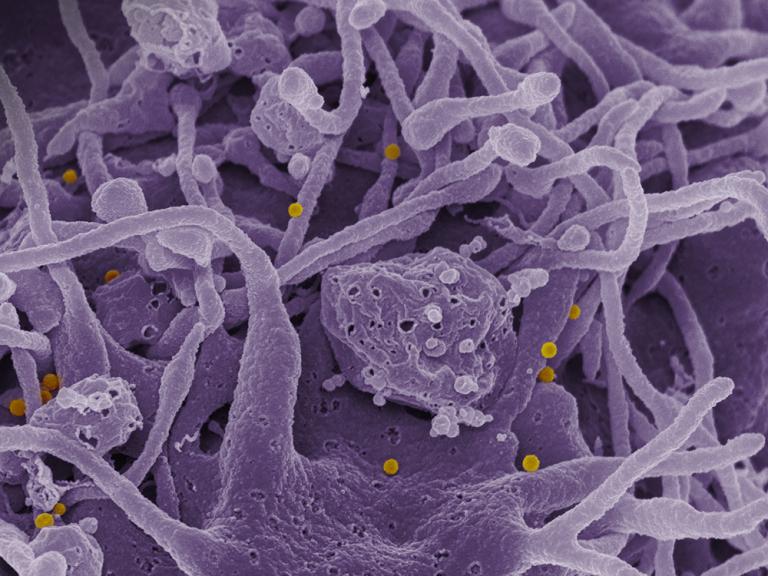
New Awards for Pandemic Preparedness Research
The Research and Development of Vaccines and Monoclonal Antibodies for Pandemic Preparedness (ReVAMPP) network conducts basic and translational research on representative viruses within a specific virus family, with the goal of developing effective vaccines and monoclonal antibodies for other viruses within that family.
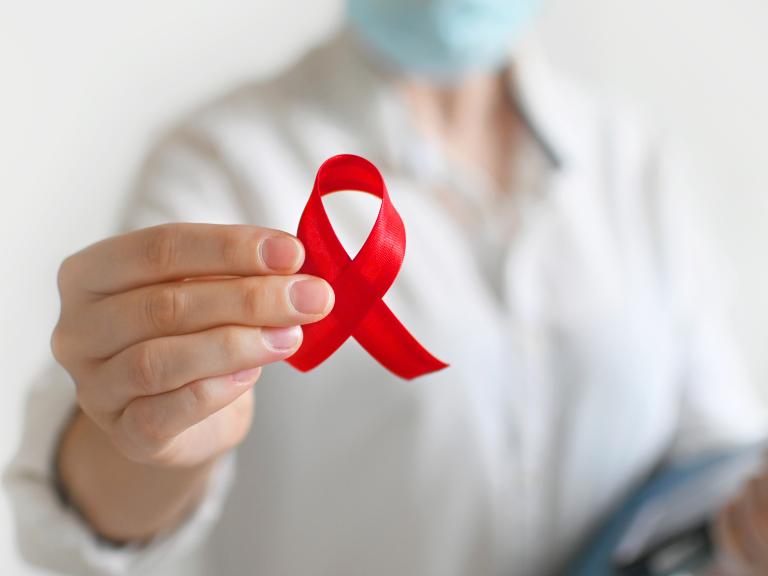
NIAID Seeks Researcher Feedback About HIV Clinical Research Enterprise
NIAID supports four research networks as part of its HIV clinical research enterprise. Every seven years, the Institute engages research partners, community representatives, and other public health stakeholders in a multidisciplinary evaluation of network progress toward short- and long-term scientific goals.

Learn About NIAID and NIH Data Sharing Policies
Data sharing helps advance research on infectious and immune-mediated diseases, and it is required of most NIAID researchers. Learn about the policies that govern data sharing and find guidance on when and where to share scientific data.
How are Programs & Networks Funded?
Networks and programs are funded through a variety of mechanisms varying from funding provided by a grant or contract, collaborations supported through private-public partnerships, defined per partnership, or groups supported wholly by NIAID or NIH, such as various Communities of Practice (COPS) or Special Interest Groups (SIGS).
How do Resources for Researchers Relate to Programs & Networks?
While NIAID supports the research community via funding through grants and other mechanisms, many NIAID networks and programs also provides access to certain resources such as preclinical services, assays, imaging, and sequencing.
How are Programs & Networks Related to Areas of Research at NIAID?
Networks and programs may tie to specific diseases and conditions (for example HIV/AIDS, influenza, or food allergy) or they may support research that is broader in nature, such as vaccines, antimicrobial resistance or immune system research.
Related Information for Researchers
Resources for Researchers
In addition to monetary funding, NIAID or NIAID-funded groups provide services that are available to the research community to advance their scientific pursuits. You may request services if you are an investigator in academia, a nonprofit organization, industry, or government in the United States or worldwide. You need not be a grantee of NIAID or another National Institutes of Health Institute or Center.
Research Funding
NIAID supports research at external academic and research institutions through funding opportunities including grants, contracts, and cooperative agreements. In addition to targeted requests for proposals in response to initiatives, NIAID is always accepting researcher-initiated applications.
NIAID Careers
NIAID scientists study all aspects of infectious diseases, from bench to bedside. With the help of support and administrative staff, they work to find ever better methods of disease prevention, diagnosis, and treatments. Find out more about NIAID’s culture, benefits, workplace flexibilities, and available NIAID Careers. Join NIAID and make a difference!
Find Your Career at NIAID
View a full list of currently recruiting job opportunities in the scientific and administrative career areas. If you are looking for research training opportunities, check out the Research Training area.
Explore NIAID’s Dynamic Atmosphere!
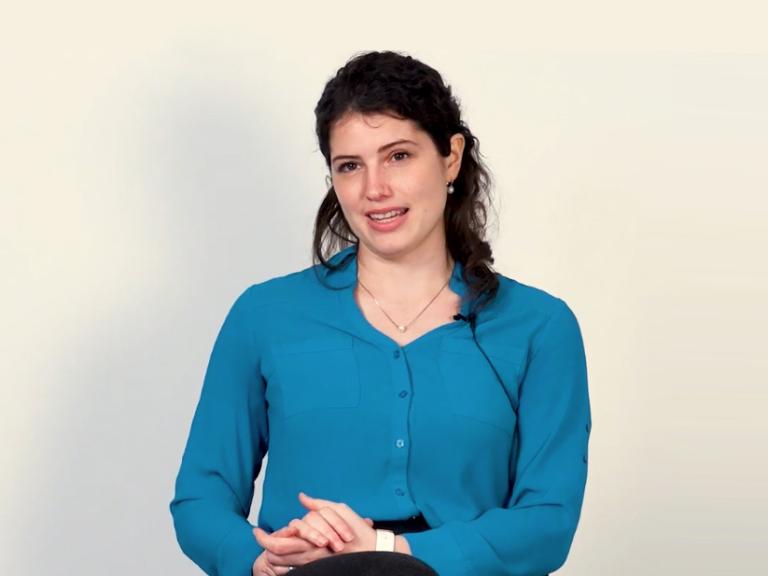
NIAID Employee Testimonials
Get a glimpse at what it’s like to work in NIAID’s dynamic atmosphere!
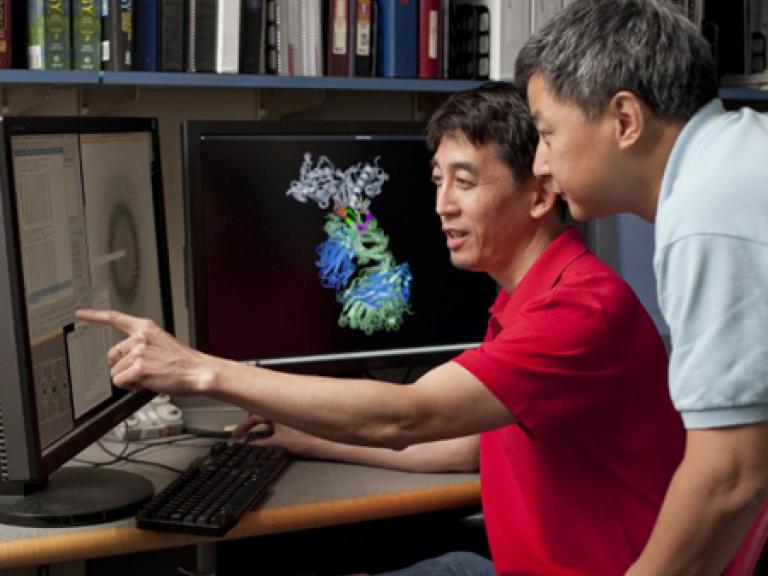
Life at NIAID
NIAID’s world-renown scientists and cutting-edge research fosters a dynamic diverse and inclusive culture in which employees thrive.
NIH Virtual Tour
Connect with Us
Follow NIAID Careers
Training and Career Development Grant Programs
NIAID uses a variety of grant programs to develop and support the next generation of biomedical researchers who may be entering graduate school, finishing their doctorates, or coming in from other fields. We award some grants to individuals, while others go to educational institutions or specific projects.
Global Vaccine and Immunization Research Forum
The Global Vaccine and Immunization Research Forum (GVIRF) is a platform for scientific exchange and engagement among vaccine and immunization research communities, intended to enhance vaccine discovery, development, and deployment. The GVIRF is facilitated by NIAID, the Bill & Melinda Gates Foundation, and the World Health Organization.
In 2010, global health leaders launched the Decade of Vaccines collaboration and created the 2010 Global Vaccine Action Plan (GVAP), a roadmap to prevent millions of deaths through more equitable access to vaccines for people in all communities. GVIRF brings together the entire vaccine and immunization research community biennially to evaluate progress in research objectives of the GVAP. GVIRF will continue to serve as a central forum for research related to Immunization Agenda 2030 (IA2030), the successor of the GVAP, and allow the vaccine and immunization research communities to gather and address research challenges, innovations, and opportunities leading toward the final strategic goal of IA2030: leave no one behind.
Main Areas of Focus
- Track progress and challenges related to priority vaccine research and development (R&D), including progress in achieving IA2030 SP7 R&D strategic objectives and goals
- Identify gaps, opportunities, and actions for the R&D community in the areas of vaccines and immunization
- Create opportunities for networking and collaboration among the vaccine R&D and immunization communities
- Expand capabilities of engagement with end users
- Enable innovation and development of new vaccines
- Accelerate development, licensing, and update of vaccinesF
- Improve program efficiencies and increase vaccine coverage
Recent and Past Events
GVIRF Representative (NIAID)
Contact Information



